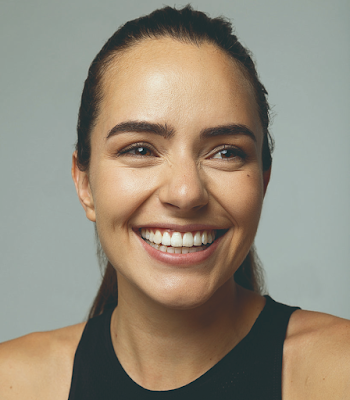1. Tell us about your background and journey.
I'm from a city called Pereira, I'm the youngest of 2 sisters. Always did sports, started with finswimming and practiced that sport for 14 years. Then I found freediving and fell in love with it.
2. How did you get introduced to freediving?
It was during a finswimming training session, we were taught some breathing exercises and by the end of the session were asked to do the longest underwater swim we could do, I did 100m and that's when I thought maybe I could be good if I trained a bit more.
3. How did you decide to make your passion your career? Was your family supportive?
As an athlete in a country like Colombia, you never think you can do this professionally, there is not enough support and you don't really get paid to train and compete, so my family always made sure I had a good education and I could become a professional.
I'm a civil engineer, but the moment I graduated, I knew I wanted to give my sport a chance, I wanted to focus 100% of my energy in trying to be the best... And I think it has paid off.
My family wasn't very happy at the beginning, because they just didn't want me to have a hard time finding support and living a comfortable life, but they were supportive with my decision and they are very happy with what I've become.
4. How did you balance your personal life amidst training?
Well, because I was always an athlete, I never really had a different life, you know, I grew up training every day of the week and my free time was used to study or just rest, so my life has always been the same. My life revolves around my sport and training and what I enjoy doing is just to go out to a nice restaurant and have great food and a good laugh with my friends.
5. What is the level of commitment and time required to make a sport a career?
It is 100%. It is hard but if you really want to be good, you have to commit to training, traveling and competing.
6. How has your life changed from being an athlete to a freediver?
I think the biggest change came when people started noticing me, I think it is harder to perform when you think a lot of people are looking up to you and wanting you to be good at something.
But I guess that's just something you have to live with, and also understand that you can inspire other people to follow their dreams with what you do.
7. What has been your biggest challenge that you faced and how did you overcome that?
My own mind playing games and doubting my abilities. Sometimes I give up before trying something just because I think I can't do it, even though I've trained enough and deep down I know I can make it.
8. What are your greatest achievements in this field?
I've achieved 3 world records, but the greatest thing is maybe reaching so many people who had no idea about this sport in my country and also inspiring other young people to live their dreams and follow their passions.
9. How can we encourage more youngsters to take up sports as a full-time profession?
I think the best way to encourage young people to take up sports as a profession is making them realise they can make a living out of something they love and enjoy, they can be the greatest at something extraordinary, they can follow their dreams, and inspire others to do the same. It might take hard work and sometimes sacrifices, but in the end, it pays off.
10. Which is your favourite book and why?
That's a tough question, but I'd have to say Cien Años de Soledad by Gabriel García Márquez, and there are many reasons why, but the most important one would be that it makes me feel like we live in an ordinary but magical world.
- Sofia Gomez Uribe
- Instagram: Sofia Gomez Uribe
- Interviewed By Pearlina Marie Rein










0 Comments